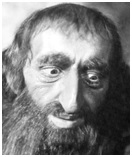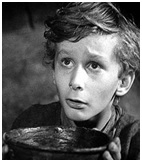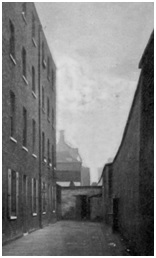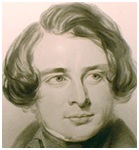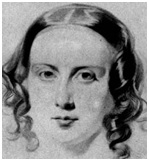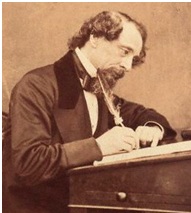|
 |
|
 |
Charles Dickens - Creativity and Writing
Charles Dickens (1812-70)
English novelist (pictured right) who exposed the cruelty and social injustice of Victorian Britain. Most of his books were serialized in weekly or monthly magazines and were enormously popular, as they are today.
His most famous books are... Oliver Twist (1837-9) David Copperfield (1849-50) Great Expectations (1860-1) Bleak House (1852-3) Hard Times (1854) A Christmas Carol (1843).
Why was he so creative?
1. Customer satisfaction He delighted his readers with great stories, humour, social comment and wonderful characters like
2. Observation and experience He was brilliant at:
They also drew on his experience such as:
He was particularly affected by his parents sending him (aged 12) to a boot blacking factory for 13 or 14 months
3. Determination and self-discipline He was incredibly self-disciplined and determined to be a successful writer, driven by;
He was never totally happy, because he couldn’t forget his miserable childhood, however hard he worked. But he never let his depression interfere with his work. 4. Money Financial security was extremely important to him because of the memory of his father in the debtors’ prison at Marshalsea, pictured right in c1897 (featured in Little Dorrit). This gave him a fanatical determination to succeed.
5. Energetic and prolific He wrote 24 novels, sometimes producing 33,000 words a month! A Christmas Carol took only just over six weeks to write He even wrote the Pickwick Papers and Oliver Twist at the same time!
6. Originality Dickens was: a) innovative Dickens (pictured right in 1842) was always ready to use new ideas in his writing, some of them revolutionary. For example, Oliver Twist was the first novel in the English language with a child as its central character and hero.
b) socially aware He was also the first novelist to make justice for the poor a central theme.
c) a trend setter A Christmas Carol (published in 1843)
Up until then presents were only given to children and the one day holiday was a time of quiet rest. Christmas cards weren’t introduced until 1846.
7. Love of writing Writing was his life, sacrificing his wife, Catherine (pictured right), and his 10 children. He was often impatient with them, irritated by their lack of intelligence and ambition. He and Catherine eventually separated, despite her love for him.
8. Preparation and inspiration He never sat down to write a novel until he had carefully planned it in great detail. But he still got new ideas and developed the characters, as he wrote. He got completely absorbed in his stories, living the lives of his characters which were: “ever tugging at his coat sleeve”, he said.
9. Restless reflection Thinking up a story for a new novel was a painful process of restless and solitary reflection, deep in thought walking (see point 10) or in his study staring out of the window. 10. Relaxation and exercise He walked a lot (10 to 15 miles a day) which:
He wrote during the morning and evening (pictured right in 1858), leaving the afternoons for relaxation, usually walking or riding. He was also a very talented amateur actor.
Key quote on law and justice Injustice breeds injustice (Bleak House).
Key quotes on past, present and future I will live in the Past, the Present and the Future...I will not shut out the lessons that they teach (Scrooge in A Christmas Carol). It’s in vain, Trot, to recall the past, unless it works some influence upon the present (David Copperfield in David Copperfield).
Key quote on time management Never do tomorrow what you can do today. Procrastination is the thief of time (Mr. Macawber in David Copperfield).
Key quote on marriage There can be no disparity in marriage like unsuitability of mind and purpose (Annie Strong in David Copperfield).
Key quote on decision making Take nothing on its looks, take everything on evidence (Mr. Jaggers in Great Expectations).
Key quote on family No man can expect his children to respect what he degrades (Tom Pinch in Martin Chuzzlewit).
Key quote on business ethics Do other men for they would do you. That’s the true business precept (Jonas Chuzzlewit in Martin Chuzzlewit).
Key quote on change Change begets change (Martin Chuzzlewit).
Key quote on relationships No one is useless in this world, retorted the Secretary, who lightens the burden of it for any one else (Our Mutual Friend).
Key quotes on love Love is in all things a most wonderful teacher (Our Mutual Friend). It is a far, far better thing that I do, than I have ever done: it is a far, far better rest that I go to, than I have ever known (Sydney Carton on sacrificing his life for his sweetheart in A Tale of Two Cities).
|
|
|
||
|
|
|
||
|
||
| Copyright © wisdomtowin.com All Rights Reserved | ||
|


